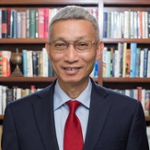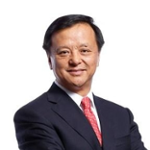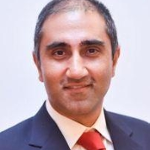*Subject to change
- Registration and Networking Breakfast
- Opening Remarks by Jack Lange, AmCham HK 2018 Chairman
- Opening Keynote: U.S. vs China in a Digital World
Minxin Pei•Stephen Roach•Robert Grieves
Minxin Pei
Tom and Margot Pritzker '72 Professor of Government and George R. Roberts Fellow & Director of the Keck Center for Int’l & Strategic Studies at Claremont McKenna College
Stephen Roach
Senior Fellow at Jackson Institute of Global Affairs, Senior Lecturer, School of Management at Yale University
Robert Grieves
Founder & Chairman of Hamilton Advisors Limited
- Panel: Tech Deal Makers: Step into the World of Venture Capital
Terrance Philips•Duncan Turner•Nisa Leung•Rishaad SalamatThe U.S. and China may be clear leaders in the world of Venture Capital, but the way investments are conducted in each country can be very different. That’s important, because VCs and startups have a largely symbiotic relationship: VCs provide the fuel and a guiding star for many aspiring and innovative startups, some of which have the potential to transform all of our lives. So, what is the recipe for success for VC investments? And the billion-dollar question, will the U.S. or China remain at the epicenter of the next wave of VC activity in the tech sector?
Moderated by Rishaad Salamat - Networking Break
- Concurrent Panels • From Silk Road to E-road: Chinese Companies are Going Digital
Larry Wong•Kristie Lu Stout•Rob Koepp•Carrie Suen•Tama Churchouse•Jenny Lee•James Lloyd•Jing Ulrich1) China as a Global Trailblazer in Digital Economy
2) U.S. & China in FinTech Development
Larry Wong
Head of China Commercial and CPE Business, Commercial Group at HKT
Kristie Lu Stout
Anchor and Correspondent at CNN International
Rob Koepp
Director; Chief Economist, The Economist Corporate Network of The Economist Group
Carrie Suen
Head of International Legal at Ant Financial
Tama Churchouse
Founder & Editor of Crypto Capital
Jenny Lee
Head of Growth at WeLab Holdings
James Lloyd
Asia-Pacific FinTech & Payments Leader; Partner (Corporate Finance Strategy) at EY
Jing Ulrich
Managing Director & Vice Chairman of Asia Pacific at JPMorgan Chase & Co.
- Luncheon
- Luncheon Keynote: Staying Relevant and Competitive: HK as the Destination Market for Tech IPOs
Charles Li - Panel: U.S. & China in Innovation & Technology: The New Era of "Coopetition"?
Jan Metzger•Sabrina Lin•Perry Wong•Andrew WeirChina is pushing to become “an innovation center for artificial intelligence” by 2030. Coopetition between China and the U.S. in AI will drive the next phase of major digital disruption. Can both nations forge a long-term collaboration for the future of innovation and technology? What are the challenges and opportunities ahead?
Moderated by Andrew Weir - Not to be Missed: The Rewards and Pitfalls of Big data
Anthony Scriffignano•Miles Wen•Neil Pabari•Shai OsterThe world is experiencing technological breakthroughs and innovations at an hard-to-comprehend speed and which have fundamentally changed our lives, the way we communicate and how we do business. The volume at which new data is being generated is staggering. The application of big data analytics – understanding the mass of data and converting it into relevant, collective, actionable intelligence – offers great potential to improve everyday lives. However, the frontline in the evolution of data – in common with those of other new technologies – poses problems and challenges to governance and administration. What can we do to prepare for such potentially tremendous changes?
Moderated by Shai Oster - Before Drinks: Tara Joseph, President of AmCham HK
- Networking Cocktail
- End of Conference












